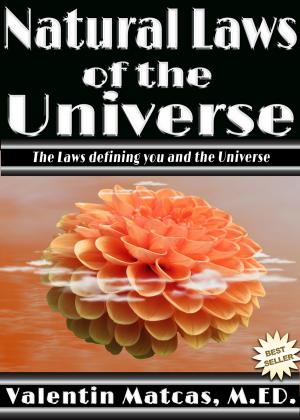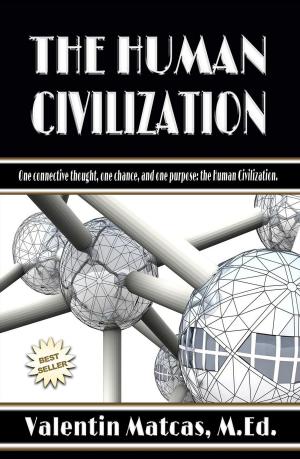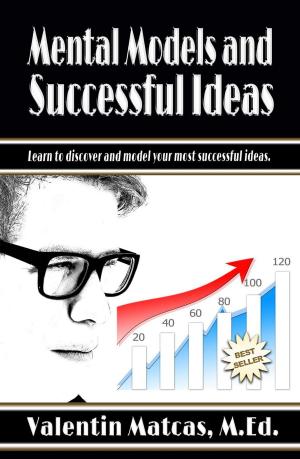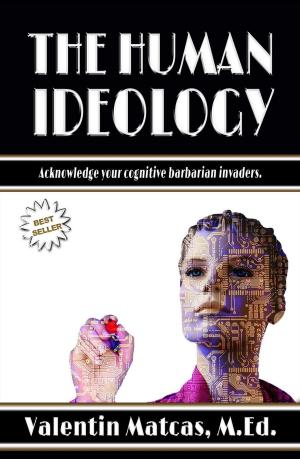| Author: | Valentin Matcas | ISBN: | 9781311913524 |
| Publisher: | Valentin Matcas | Publication: | February 14, 2016 |
| Imprint: | Smashwords Edition | Language: | English |
| Author: | Valentin Matcas |
| ISBN: | 9781311913524 |
| Publisher: | Valentin Matcas |
| Publication: | February 14, 2016 |
| Imprint: | Smashwords Edition |
| Language: | English |
Psychology states that the human mind has two intelligences: the conscious and the subconscious. Everybody knows this and you always learn it in school, yet this is only a superficial observation meant to define only what you can access consciously within your brain and what you cannot. ...And what you want the most is to access it all, but how can you, when you cannot define what it is? These two human intelligences are divided into further intelligences, and it is relevant to be able to acknowledge them all. For example, your subconscious intelligence consists of primal subconscious intelligences specialized in the entirety of your bodily activity, as eating, recovery, socialization, reproduction, development, security, learning, cooperation, wellbeing, interconnection, and so on.
Who are you? From a cognitive perspective, you may identify yourself with your conscious intelligence the most, since this is what offers you awareness and conscious reasoning. You are certainly aware of all subconscious intelligences stated above, yet there are more human intelligences interacting with you and your cognitive system continuously, with some exceeding the human mind altogether. In addition, you may always employ artificial and fictitious human intelligences. You live your life through some of these even unknowingly, some may be pleasant and useful, while others may be your sources of all evil.
Apart from needs, feelings, reasoning, and awareness, the human intelligences can offer you a variety of separate, distinct interfaces, identities, selves, and avatars to use throughout life. Some of these you may acknowledge and some you may not, some are within your mind and some are outside, and in addition to your own reasoning, needs, choices, and feelings, these certainly add to the extraordinary complexity and uniqueness of your life.
You know well your conscious intelligence since you control it at will, while you might be interested in the subconscious intelligence too since it remains out of your reach, it governs your life from the background, and if you are not careful it ruins you, it goes against your will, and it makes everything in life rather challenging and unexpected. ...And if you only knew more about your unconscious, then you would certainly be happier and more successful in life, right?
What can you do? How can you control your subconscious intelligence? How exactly can you control rigidly other intelligences and other living beings including human beings? You cannot, or you should not, but you should seek harmony and cooperation. ...And if you are not aware of any of these, all that you can do is hope that your subconscious intelligence behaves accordingly, or else you get sick or mad, or you get in trouble. ...Yet many times, your two main intelligences cooperate well, regardless if you acknowledge it or not.
Is this inner, cognitive relationship significantly important? Yes, mostly when it goes wrong! This is why it is highly important to learn everything about your own mind and about all intelligences comprising it, probably in order to be able to maintain your own inner harmonious cooperation throughout life. ...And if you are capable to do so at all levels, inner and outer, higher and lower, you may call this a successful life indeed, since harmony and cooperation are mandatory in achieving your meaning in life and in the world.
It is the purpose of this book to study the human intelligences, as they inhabit, form, and manage the human mind, in all details and from all perspectives. You have the chance to acknowledge and understand all your intelligences, allowing you to reason and behave in the most adequate manner toward achieving your inner harmony and meaning in life.
Psychology states that the human mind has two intelligences: the conscious and the subconscious. Everybody knows this and you always learn it in school, yet this is only a superficial observation meant to define only what you can access consciously within your brain and what you cannot. ...And what you want the most is to access it all, but how can you, when you cannot define what it is? These two human intelligences are divided into further intelligences, and it is relevant to be able to acknowledge them all. For example, your subconscious intelligence consists of primal subconscious intelligences specialized in the entirety of your bodily activity, as eating, recovery, socialization, reproduction, development, security, learning, cooperation, wellbeing, interconnection, and so on.
Who are you? From a cognitive perspective, you may identify yourself with your conscious intelligence the most, since this is what offers you awareness and conscious reasoning. You are certainly aware of all subconscious intelligences stated above, yet there are more human intelligences interacting with you and your cognitive system continuously, with some exceeding the human mind altogether. In addition, you may always employ artificial and fictitious human intelligences. You live your life through some of these even unknowingly, some may be pleasant and useful, while others may be your sources of all evil.
Apart from needs, feelings, reasoning, and awareness, the human intelligences can offer you a variety of separate, distinct interfaces, identities, selves, and avatars to use throughout life. Some of these you may acknowledge and some you may not, some are within your mind and some are outside, and in addition to your own reasoning, needs, choices, and feelings, these certainly add to the extraordinary complexity and uniqueness of your life.
You know well your conscious intelligence since you control it at will, while you might be interested in the subconscious intelligence too since it remains out of your reach, it governs your life from the background, and if you are not careful it ruins you, it goes against your will, and it makes everything in life rather challenging and unexpected. ...And if you only knew more about your unconscious, then you would certainly be happier and more successful in life, right?
What can you do? How can you control your subconscious intelligence? How exactly can you control rigidly other intelligences and other living beings including human beings? You cannot, or you should not, but you should seek harmony and cooperation. ...And if you are not aware of any of these, all that you can do is hope that your subconscious intelligence behaves accordingly, or else you get sick or mad, or you get in trouble. ...Yet many times, your two main intelligences cooperate well, regardless if you acknowledge it or not.
Is this inner, cognitive relationship significantly important? Yes, mostly when it goes wrong! This is why it is highly important to learn everything about your own mind and about all intelligences comprising it, probably in order to be able to maintain your own inner harmonious cooperation throughout life. ...And if you are capable to do so at all levels, inner and outer, higher and lower, you may call this a successful life indeed, since harmony and cooperation are mandatory in achieving your meaning in life and in the world.
It is the purpose of this book to study the human intelligences, as they inhabit, form, and manage the human mind, in all details and from all perspectives. You have the chance to acknowledge and understand all your intelligences, allowing you to reason and behave in the most adequate manner toward achieving your inner harmony and meaning in life.















